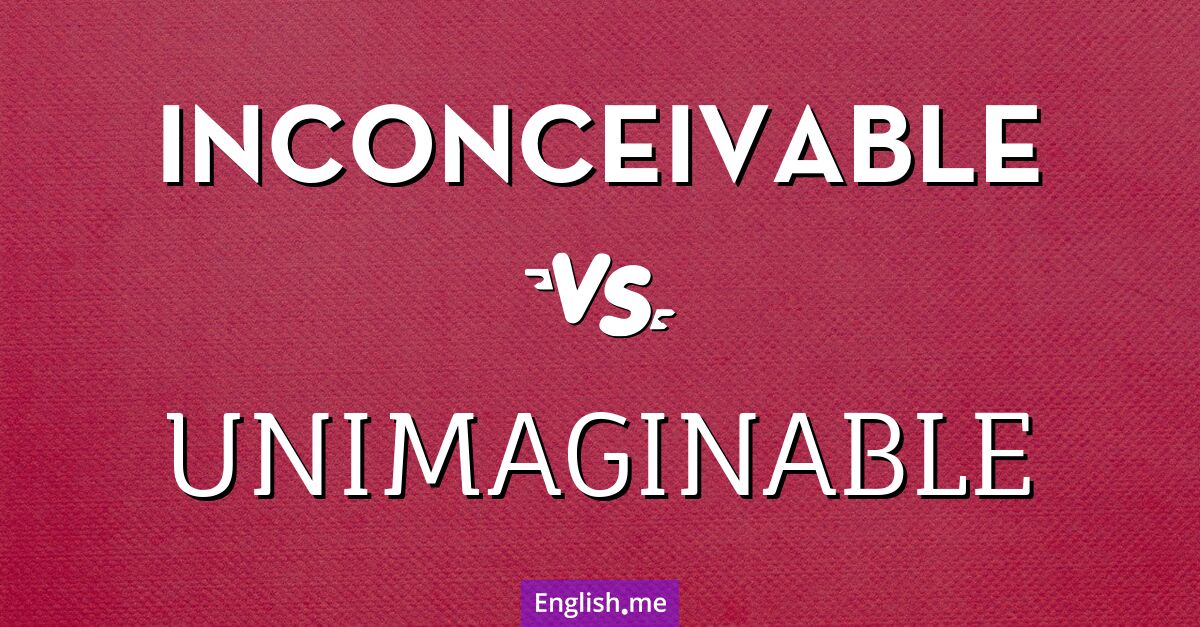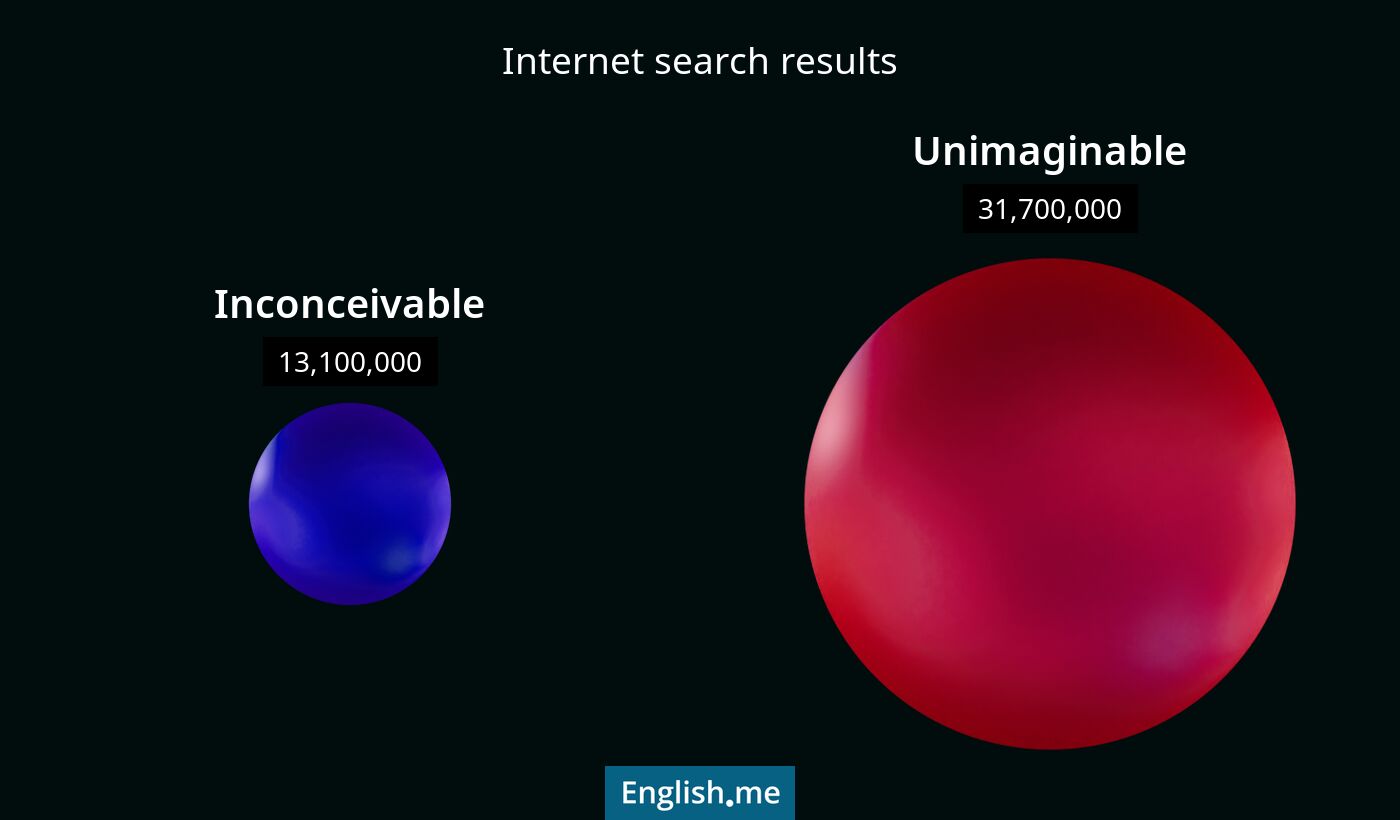Beyond belief: exploring "inconceivable" vs. "unimaginable"
Reviewed and edited by  Lloyd Cooper 12/11/2024, 14:52
Lloyd Cooper 12/11/2024, 14:52
English.me team member

 What is similar?
What is similar?
Both "inconceivable" and "unimaginable" describe something that cannot be thought of or comprehended. They are often used interchangeably to express the impossibility or extreme difficulty of imagining something.
 What is different?
What is different?
"Inconceivable" generally emphasizes the inability to conceive something due to it being extremely unlikely or hard to believe. "Unimaginable" tends to focus more on the sheer vastness or extremity of something making it impossible to imagine. "Inconceivable" can also carry a slightly more logical connotation, whereas "unimaginable" can have a more emotional or descriptive nuance.
 Which one is more common?
Which one is more common?

 Examples of usage
Examples of usage
Inconceivable- The rapid advancement of technology in the last decade would have been inconceivable to past generations.
- It seemed inconceivable that the team could come back from such a deficit to win the game.
- Her achievements in such a short time were completely inconceivable to her peers.
- The devastation caused by the hurricane was unimaginable.
- Winning the lottery and becoming a millionaire overnight felt unimaginable to him.
- For some, the concept of living on another planet remains unimaginable.

 English
English español
español française
française italiano
italiano deutsche
deutsche 日本語
日本語 polski
polski česky
česky svenska
svenska Türkçe
Türkçe Nederlands
Nederlands